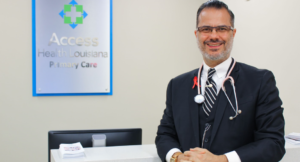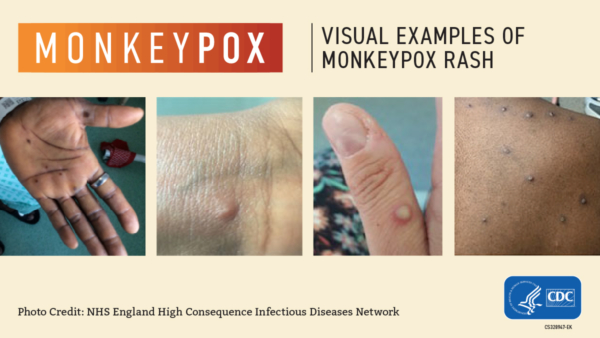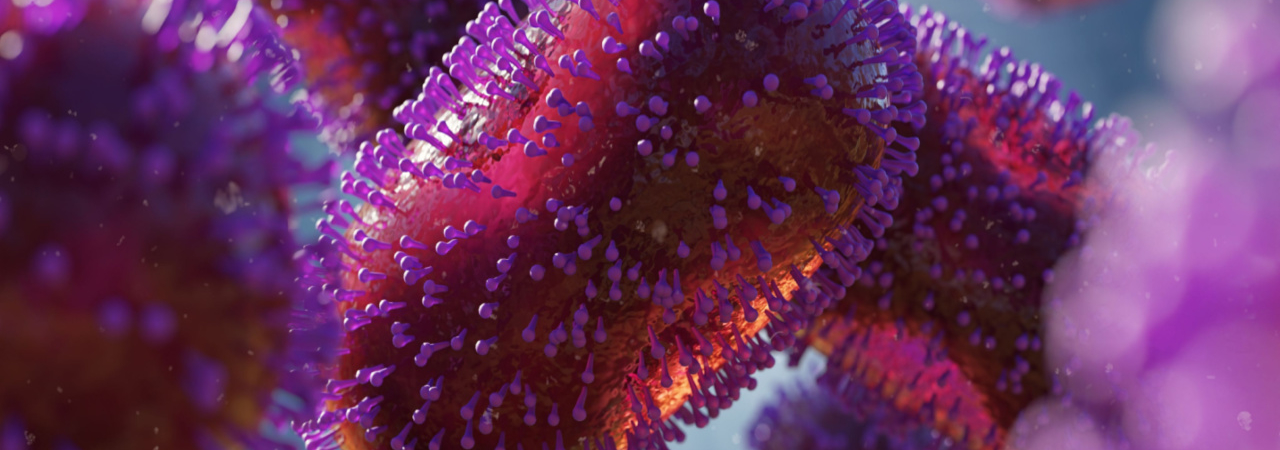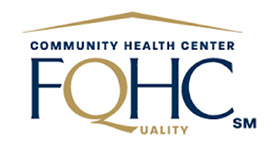News, St. Tammany CHC Behavioral Health in Mandeville, St. Tammany CHC Behavioral Health in Slidell, Access Health Louisiana Primary Care at Pythian, Belle Chasse C.H.C, Kenner C.H.C., South Broad C.H.C, St. Bernard C.H.C., St. Charles – Norco C.H.C, St. Tammany – Slidell C.H.C, St. Charles – Luling C.H.C, Tangipahoa C.H.C, Washington C.H.C, Woodworth C.H.C.
LDH confirms 306 cases of monkeypox in Louisiana
As of January 17, 2023, Louisiana has 306 diagnosed cases of monkeypox. The Office of Public Health states that the most cases were reported in Orleans, Plaquemines, St. Bernard, and Jefferson parishes. With cases of monkeypox popping up not only across the country but within the state, learning more about the virus can help you to understand your risk and protect yourself and your family from infection. To find a vaccination site please visit this page. For more information about vaccine eligibility please see below.
The monkeypox virus is part of the same family of viruses as variola virus, the virus that causes smallpox. However, contrary to smallpox, monkeypox infections are usually mild and rarely fatal. The most common symptom of monkeypox is a rash that looks like pimples or blisters. This rash often appears on the face, inside the mouth, or on the hands, feet, chest, genitals, or rectum.

Dr. MarkAlain Dery, an infectious disease physician with Access Health Louisiana, adds that “monkeypox blisters look like pimples and other sexually transmitted infections. It is important that if you develop a new rash, you have it looked at by a provider. We can get you on treatment and prevent further transmission.” Other flu-like symptoms can accompany the rash such as fever, headache, muscle and back aches, swollen lymph nodes, chills, and exhaustion.

The monkeypox virus is transmitted through direct contact with the rash, scabs, or bodily fluids. It can also spread through touching items that have previously touched the infectious rash or bodily fluids such as sheets or linens. Respiratory secretions during prolonged face-to-face contact, or intimate physical contact, such as kissing, cuddling or sex can also spread the virus.
Take precautions to avoid contracting monkeypox by avoiding close, skin-to-skin contact with people who have a rash that looks like monkeypox. Do not touch the rash or scabs of someone with monkeypox or kiss, hug, cuddle, or have sex with them. For additional information about sexual health and monkeypox please visit the CDC’s page on sexual health here. Avoid sharing utensils or cups with a person with monkey pox along with touching bedding, towels, or clothing of a person with the virus. Wash your hands often or use an alcohol-based hand sanitizer. Common household disinfectants can help sanitize surfaces from monkeypox.
Currently, most monkeypox transmission is amongst men who have sex with men. However, anyone who comes in contact with the virus is susceptible. There are two FDA approved vaccines, both of which can be administered after exposure to the virus to prevent infection. “It is important that as cases are rising, we are focusing on prevention,” Dr. Dery commented. “Avoid direct contact with people who may be contagious. If you are in a high-risk group and have had prolonged skin-to-skin exposure with multiple partners, make an appointment to discuss vaccination as post-exposure prophylaxis. Access Health Louisiana has a sliding scale for services, so we can help get you the care you need at a price you can afford.” Official monkeypox vaccination sites can be found at this link. The Louisiana Department of Health has outlined the current eligible groups for vaccination which are broken into two sections. Section one includes people with known exposures or individuals with high risk exposures in the last 14 days. Section two includes gay, bisexual, other (cis or trans) men who have sex with men OR Transgender women and nonbinary persons assigned male at birth who have sex with men and have had intimate or sexual contact with multiple or anonymous partners in last 14 days OR have had intimate or sexual contact with other men in a social or sexual venue in the last 14 days. Additionally, individuals (of any sex/gender identity) who have given or received money or other goods/services in exchange for sex in the last 14 days and individuals (of any sex/gender identity) who have been determined to be at high risk for monkeypox exposure by a healthcare provider or public health official are also eligible.
An important point emphasized by the LDH is that anyone can contract monkeypox and current eligibility criteria are only limited to the above groups because they are most at risk based on the first diagnoses the LDH have seen. However, the criteria will be expanded as additional vaccine becomes available and/or individuals from other groups are diagnosed.
If you will be traveling this summer, take note of what monkeypox cases look like at your destination. The states that currently have the highest case load are New York, California, Illinois, and Florida. For the full U.S. Map and Case Count, visit the CDC’s page found here. If you believe you have or have been exposed to monkeypox, please contact your healthcare provider. If you do not have a healthcare provider, you can visit a parish health unit near you. Additionally, you can make a telehealth appointment with Dr. Dery by calling 504-226-2976. Take precautions such as isolating. If you have a rash or other symptoms, stay away from other people and pets in your household if possible.
For more information about monkeypox including prevention and treatment, visit the CDC page here. For information about Louisiana’s response to monkeypox visit the LDH’s page here.

